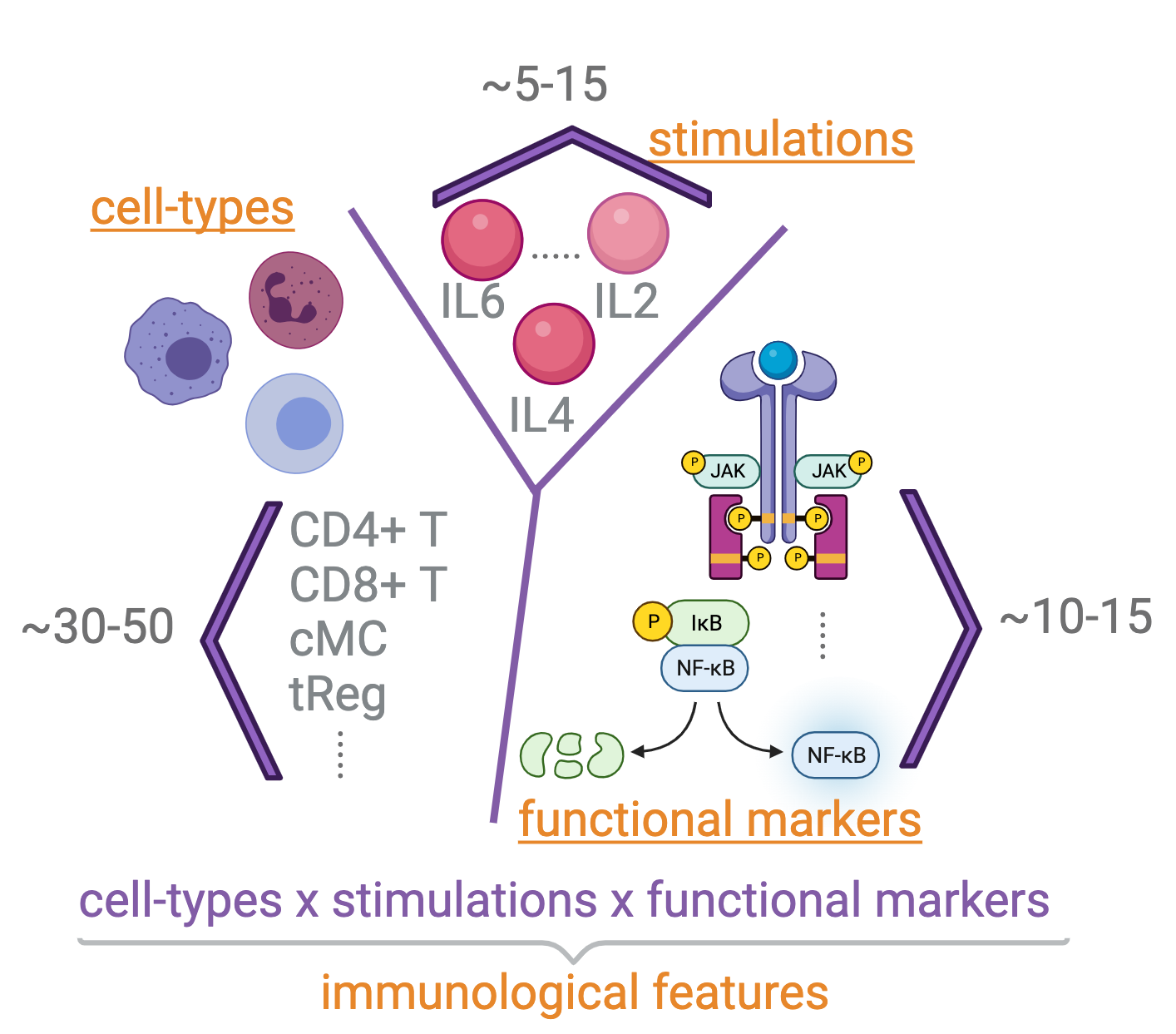
September 1, 2023
Above: Immune cell types, stimulations, and functional markers all contribute to the immunological features being analyzed by Stanley’s project | Right: Natalie Stanley
 Assistant Professor Natalie Stanley received a grant from the National Institutes of Health (NIH) to develop new, fully automated bioinformatics techniques to identify and characterize clinically predictive intracellular signal responses elicited through ex vivo stimulation.
Assistant Professor Natalie Stanley received a grant from the National Institutes of Health (NIH) to develop new, fully automated bioinformatics techniques to identify and characterize clinically predictive intracellular signal responses elicited through ex vivo stimulation.
The grant, titled “Automating the Discovery of Clinically-Relevant Intracellular Signaling Responses in Immune Cell-Types,” is worth $219,336 over two years and was provided by the NIH National Institute of Allergy and Infectious Diseases as part of the NIH Exploratory/Developmental Research Grant Award program. Grants from this program are also known as R21 grants.
Stanley and her computational immunology lab work to characterize immune system cells and how they operate in the context of specific diseases. Working with a large volume of immune cells that have been subjected to ex-vivo stimulations (e.g. experimental perturbations) to elicit intracellular signaling responses in particular immune cell types, her objective is to combine and analyze the data to identify specific intracellular responses that can be used to diagnose or manipulate the immune system in order to treat diseases. Analyzing this data is difficult, because it involves many different types of stimulations, immune cell types, and signaling responses from the cell, all of which can individually influence the result. Stanley’s work is the first to tackle this process in a fully automated manner, enabling efficient analysis in large patient cohorts.
Stanley is an assistant professor in the Department of Computer Science and the School of Medicine’s Computational Medicine Program and director of the UNC CompCy Lab, which undertakes computational immunology research. The CompCy Lab focuses on extracting, organizing, and representing information from immune profiling technologies, such as flow cytometry and mass cytometry, in order to identify components of the immune system that can be modulated for therapeutic effect.
